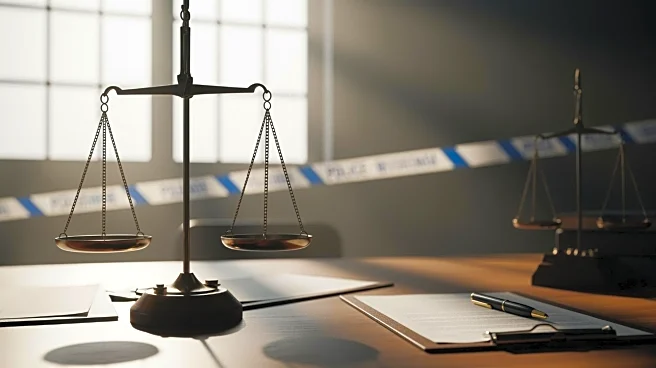What's Happening?
A federal judge has raised concerns about the Justice Department's handling of evidence in the criminal case against former FBI Director James Comey. Magistrate Judge William Fitzpatrick of the Eastern District of Virginia expressed apprehension over
the department's approach, suggesting it might be veering close to mishandling evidence. The case involves data collected under four search warrants in 2019 and 2020, which could be pivotal in the case against Comey. The judge questioned the prosecutors about the evidence in their possession and whether confidential records, including attorney-client communications, had been improperly accessed. Comey, charged with giving a false statement to Congress related to a leak investigation, has pleaded not guilty. His defense team argues that his constitutional rights may have been violated and seeks access to all information collected during the investigation to prevent prosecutors from using old warrants to incriminate him further.
Why It's Important?
The judge's remarks highlight ongoing concerns about the politicization of the Justice Department and the potential mishandling of evidence in high-profile cases. This situation underscores the importance of transparency and proper legal procedures in maintaining public trust in the justice system. The outcome of this case could have significant implications for the Justice Department's credibility and the legal standards applied in similar investigations. If Comey's rights were indeed violated, it could lead to broader scrutiny of the department's practices and impact future cases involving government officials.
What's Next?
The Justice Department has been ordered to provide Comey's defense team with all relevant details by Thursday, including information recovered from electronic accounts and grand jury documents. This deadline places pressure on the department to ensure compliance and transparency. The defense will need to review a substantial amount of records in a short time, which could affect their strategy and the case's progression. The judge's decision on whether the evidence was properly handled will be crucial in determining the case's direction and potential outcomes.
Beyond the Headlines
This case raises ethical and legal questions about the balance between national security interests and individual rights. The handling of evidence in politically sensitive cases can influence public perception of justice and fairness. Long-term, this situation may prompt discussions on reforming evidence handling procedures and ensuring accountability within the Justice Department.
















